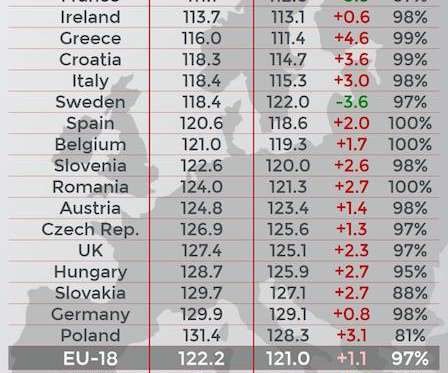JATO: new car average CO2 emissions highest in Europe since 2014; slow EV uptake insufficient to counter fewer diesels and more SUVs
Green Car Congress
MARCH 4, 2020
Pure electric cars have a 2% market share in France, this being the highest share among all five major markets. France is therefore leading the way in showing how electric cars can have a measurable impact on emissions levels, despite their adoption still lagging behind diesel and gasoline counterparts. —Felipe Munoz.












Let's personalize your content